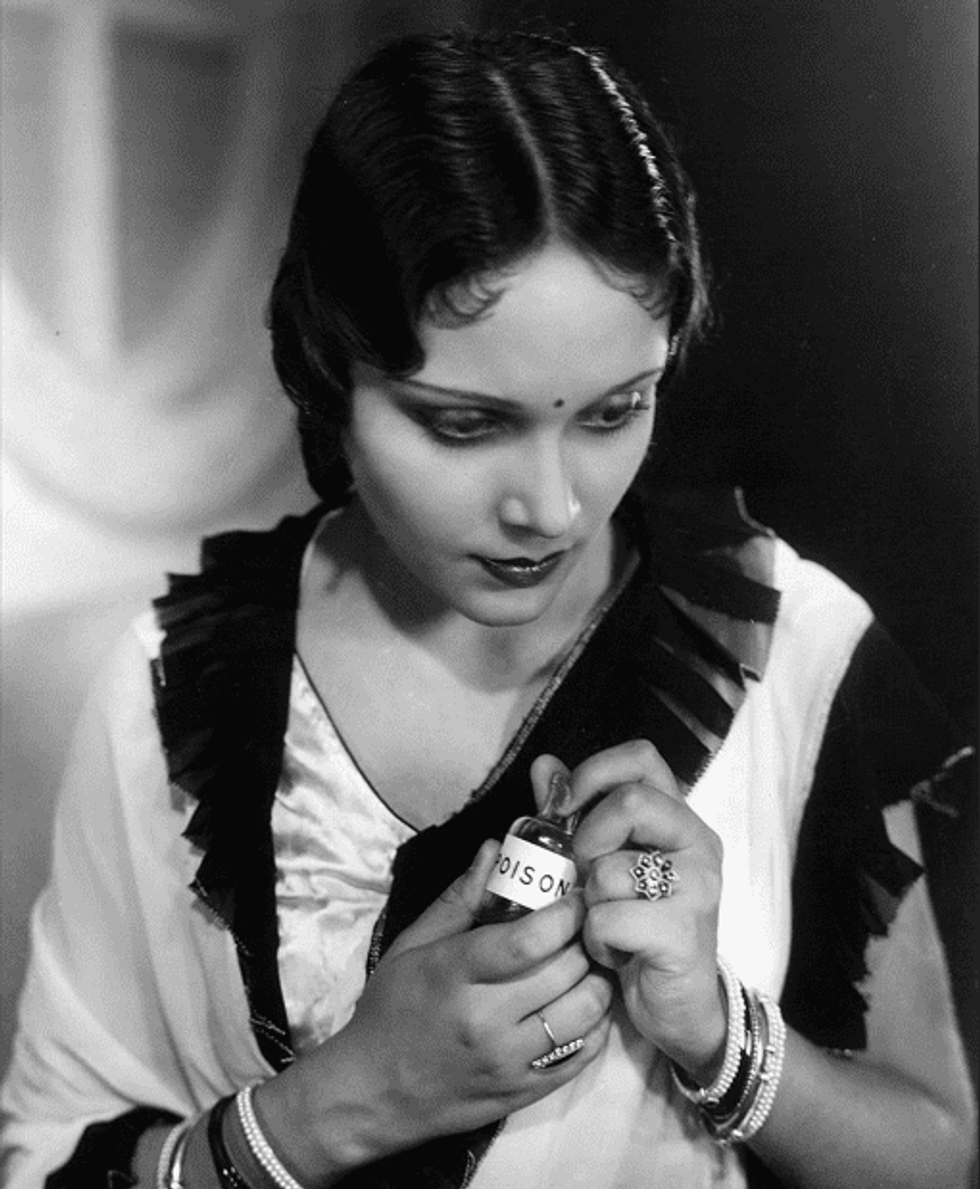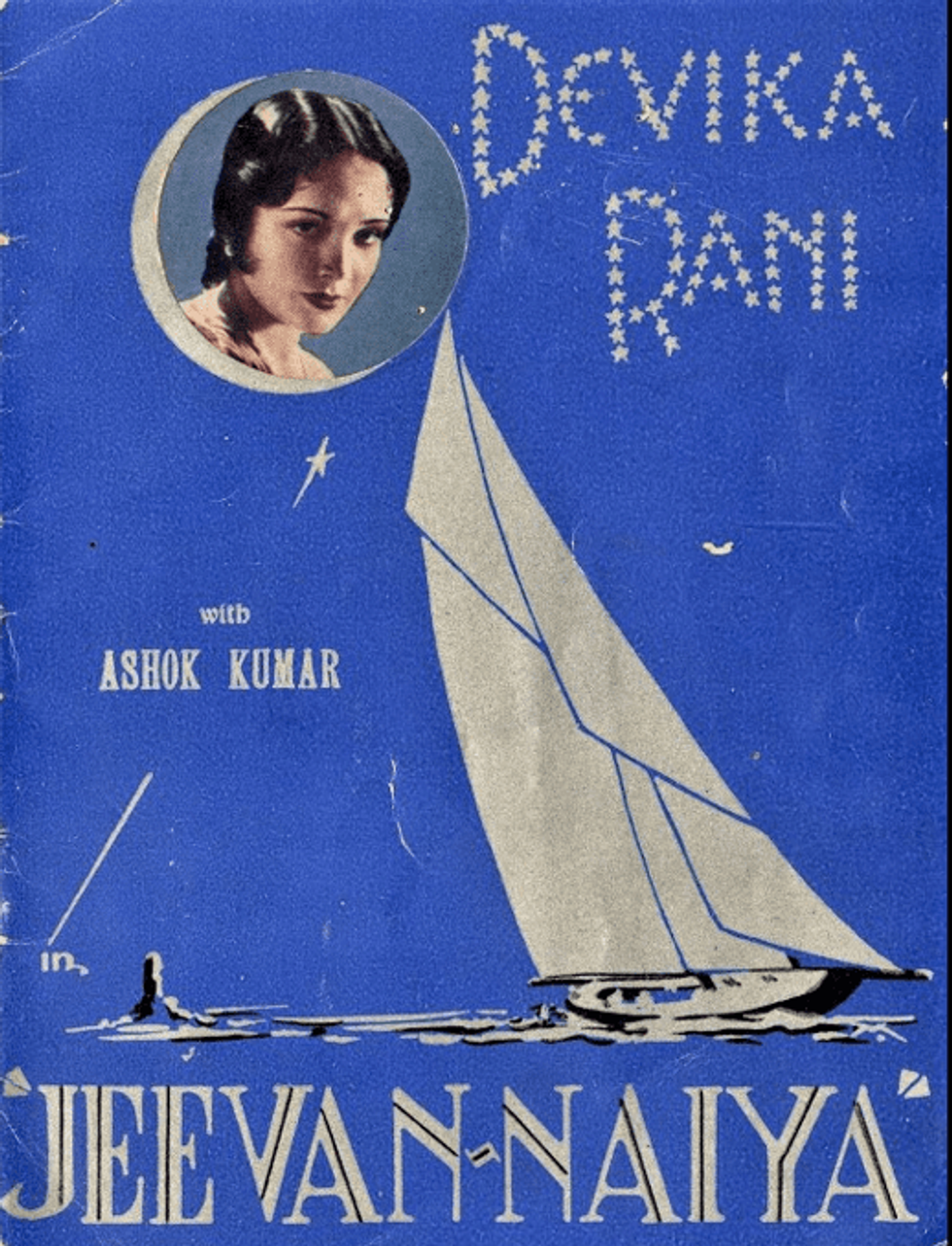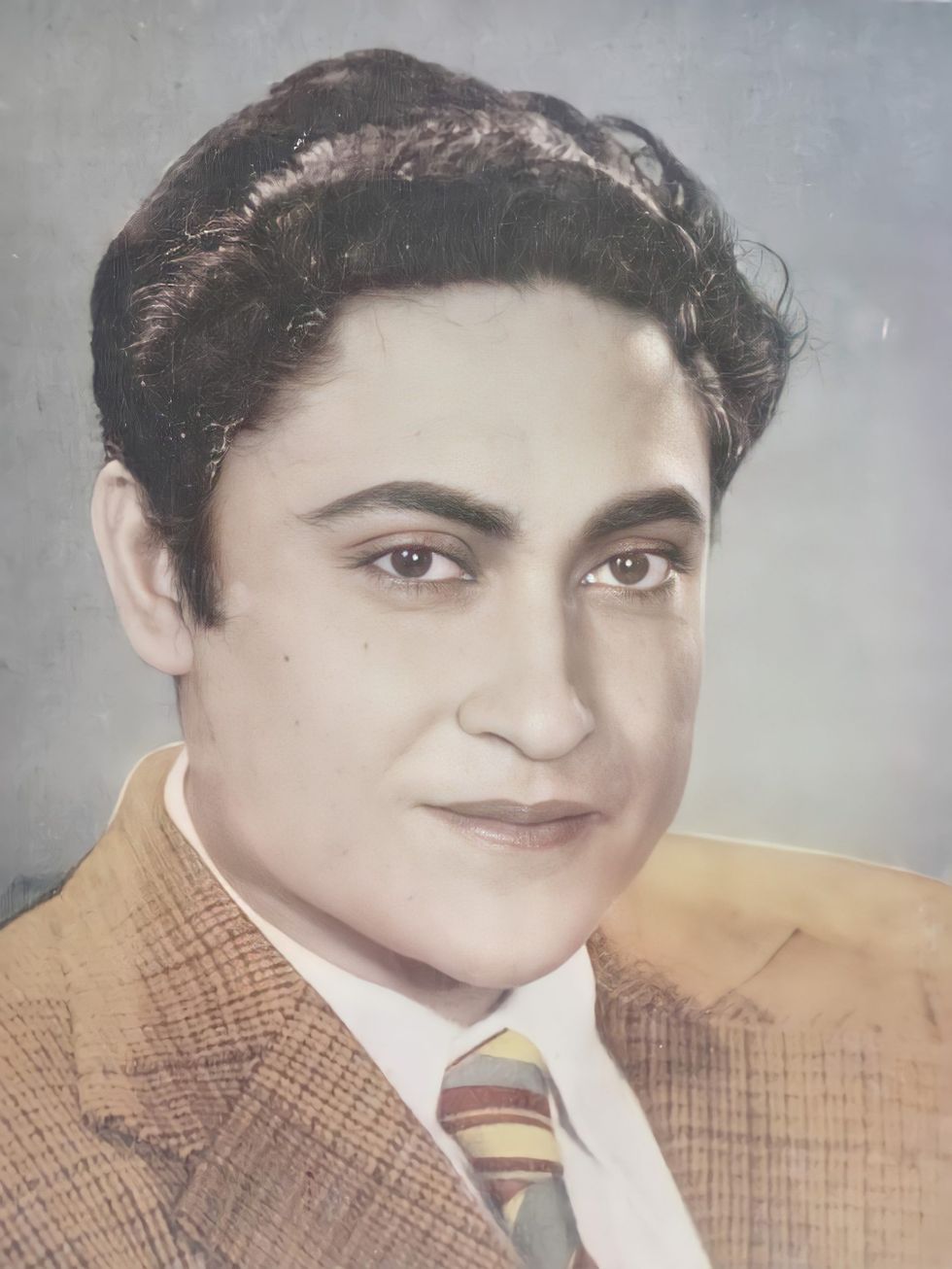Long forgotten 1930s classic Jeevan Naiya inadvertently changed the course of commercial Bollywood with a domino effect triggered by an extramarital affair that can still be felt today.
To mark the 87th anniversary of the film, which was released on May 2, 1936, Eastern Eye went back in time to tell the fascinating story of an infidelity becoming a major turning point in Hindi cinema.
Actor/producer Himanshu Rai and actress Devika Rani had become the number one power couple in Bollywood after the success of their film Karma (1933). Their perfect partnership led to legendary studio Bombay Talkies being founded, with him as the producer and her as the talismanic lead star. For the banner’s first film Jawani Ki Hawa (1935), Rai cast his wife opposite dashing actor Najmul Hussain. The Franz Osten-directed drama became a big success.

Unaware that his wife had gotten involved with her co-star during the production of that movie, Rai immediately cast them together again for his next film Jeevan Naiya. Shortly into production, the two lead stars shocked everyone by eloping.
But in 1930s India, it was nearly impossible for a woman to divorce her husband and remarry. It emerged decades later that Rani was in an abusive marriage but had no recourse to legally separate.
She returned to her deeply embarrassed husband on her own terms, including having some control of the film studio and her own finances. With a lot of money having been spent on Jeevan Naiya, and Rani being a huge box-office draw, he agreed to her terms. Rai also wanted to save face in society and prevent his fledgling studio from going bankrupt.
Although the A-list actress reluctantly returned to her marital home, their relationship going forward would only be a professional one.

Hussain was fired from the film, and the producer had to quickly find himself a replacement leading man. Having been burned by casting his beautiful wife opposite a dashing hero, Rai took the strange decision to cast a lab assistant named Kumudial Kunjilal Ganguly.
But the shy young man was unwilling to act in movies and worried that his parents would disapprove. Meanwhile, German director Franz Osten was unwilling to cast him, and had famously said, “You’ll never make it as a lead actor, you have a hugely tremendous jaw”.
But Rai was adamant that the young man had star potential, so persuaded him and his family. He then rechristened the newcomer as Ashok Kumar and cast him opposite Bollywood’s number one leading lady. That surprise move turned into a masterstroke, with Jeevan Naiya becoming a huge success. This led towards the lead pair being cast in Achhut Kannya (1936) later that same year. That smash-hit movie would become an all-time classic.
By the end of the 1930s, the young actor, who got his big acting break thanks to a cheating spouse, would become the number one leading man in Hindi cinema. By the early 40s, he was hailed as the first male superstar of Bollywood and headlined films that smashed every box-office record.

His success would start a domino effect across subsequent decades. He would also transform the industry by introducing new acting techniques inspired by Hollywood and playing the first anti-hero in record-breaking film Kismet (1943). This would influence storytelling and leading men in a way that can still be seen today.
Ashok Kumar then formed a dream team with his brother-in-law Sashadhar Mukherjee and helped turn him into a great filmmaker. That continuing domino effect led towards the now established actor, introducing his younger brother Kishore Kumar, who would become one of India’s greatest ever singers and inspire countless others with his musical brilliance in the decades that followed.
When Rai died in 1940, Rani took over Bombay Talkies, thanks to the deal negotiated after her infidelity. That stint as studio head included her discovering an aspiring young actor named Yusuf Khan and rechristening him as Dilip Kumar. He would go on to become arguably the greatest actor in Hindi cinema history and influence all those who followed in his footsteps, including Amitabh Bachchan.
Ashok Kumar would go on to co-found legendary film banner Filmistan and introduce a lot of new talent into Bollywood. This included giving legendary filmmaker BR Chopra his first big break as a director with successful movie Afsana (1951).
He would, in turn, launch his own younger brother Yash Chopra, who would become Hindi cinema’s greatest director and establish Yash Raj Films, the iconic banner behind hit movies like 2023 blockbuster Pathaan.
Ashok Kumar would carry on acting right up until the 1990s, in nearly 300 films that included countless all-time classics like Parineeta (1953), Howrah Bridge (1958), Kanoon (1960), Bandini (1963), Jewel Thief (1967), Pakeezah (1972), and so many more. He would also be a pioneer in Indian television during the 1980s and mentor new talent. Many became famous after working on his films, like singer Lata Mangeshkar’s career-changing song in Mahal (1949).
The many branches, from acting talent and marvellous movies to big banners, path-breaking moments, and new techniques, can be traced back to an extramarital affair during the making of Jeevan Naiya, which turns a year older this week.




